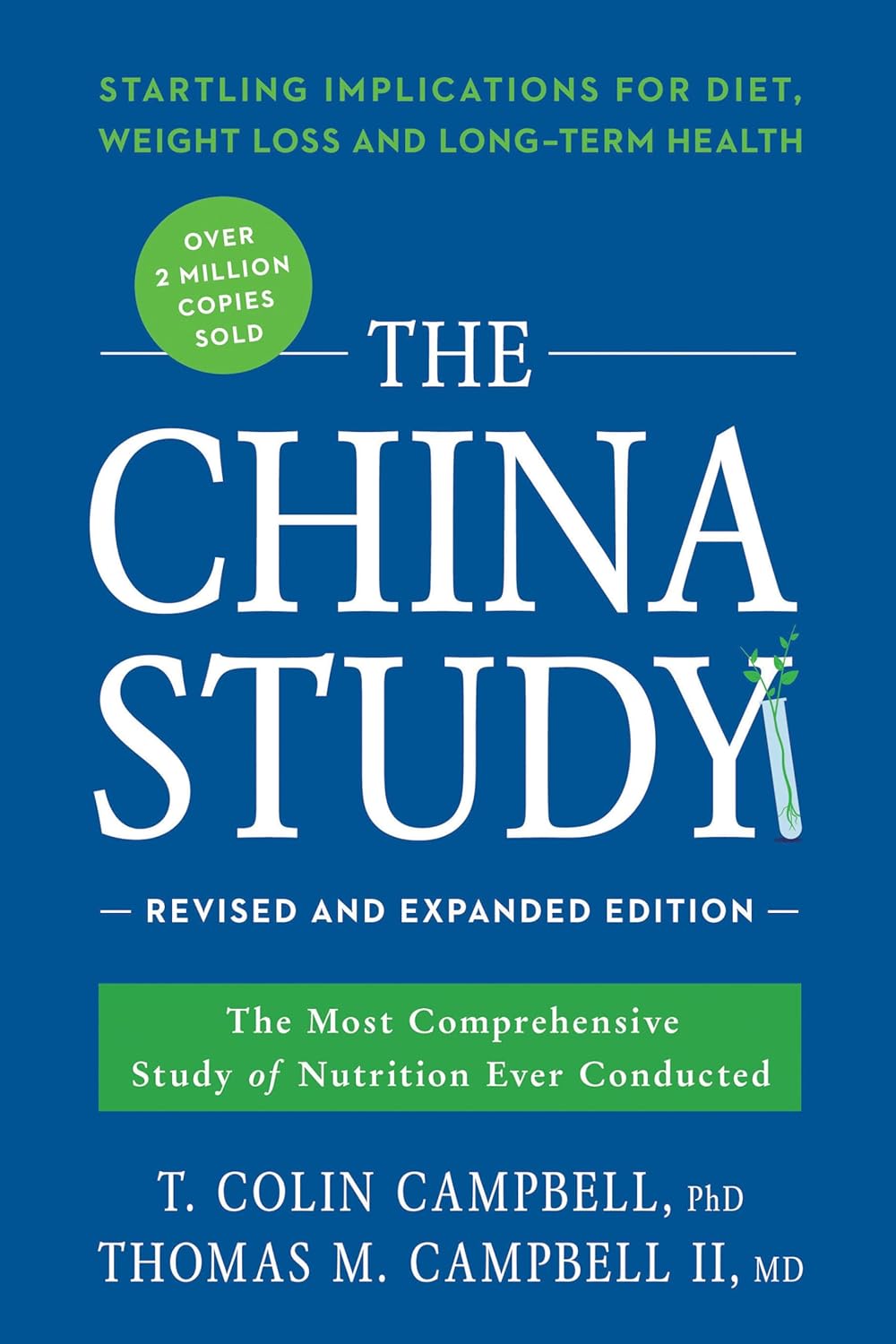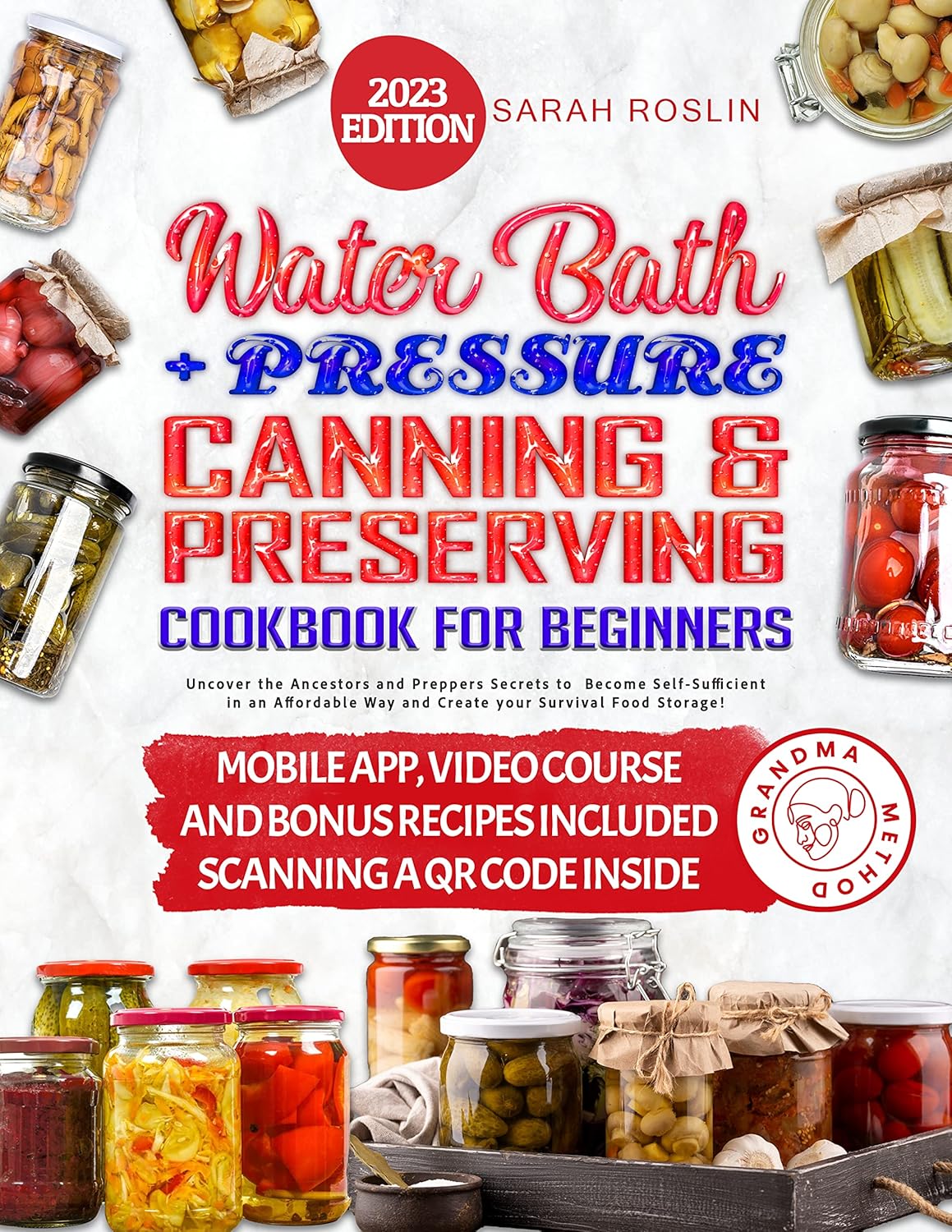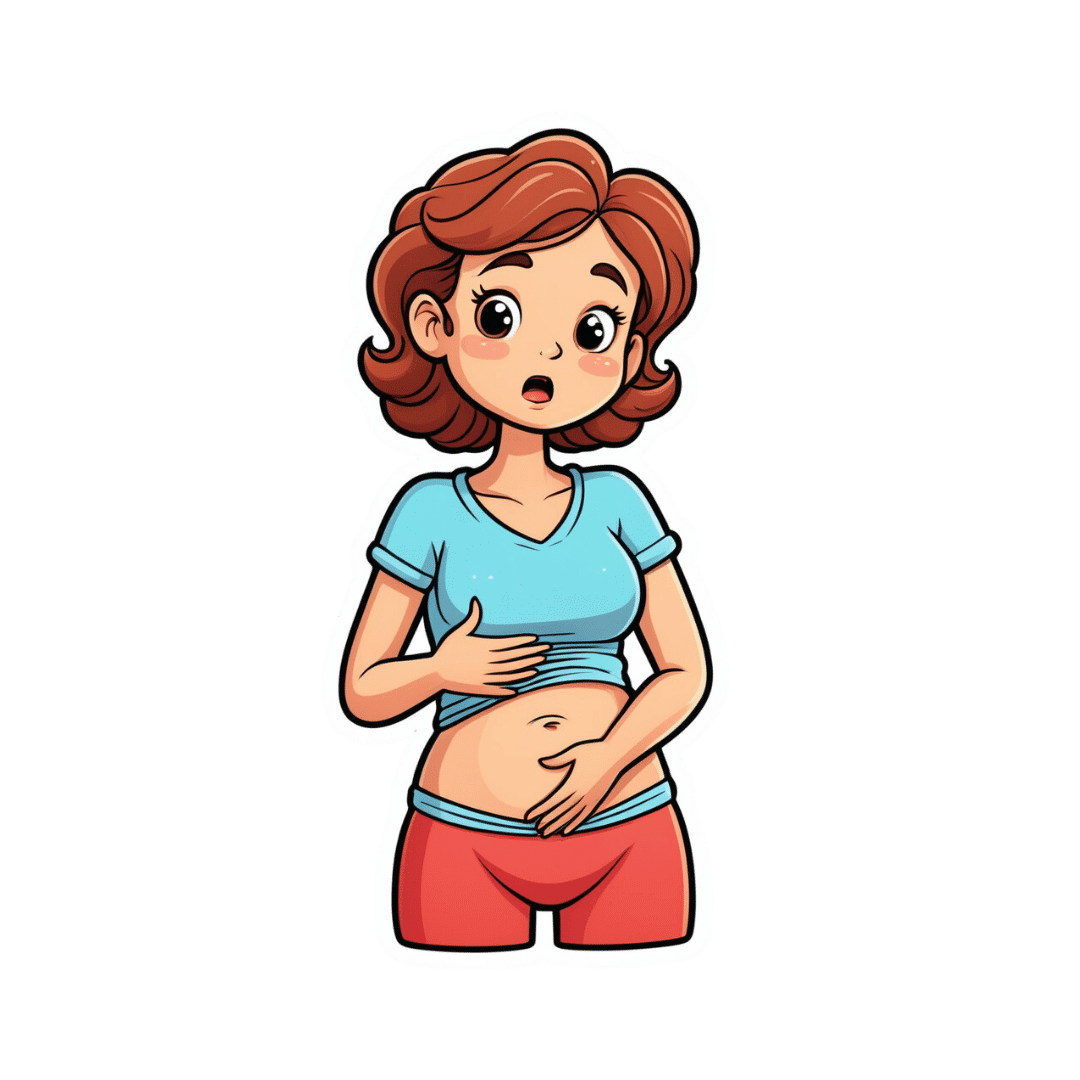
Lifestyle vs Multiple Sclerosis & More
10almonds is reader-supported. We may, at no cost to you, receive a portion of sales if you purchase a product through a link in this article.

This is Dr. Saray Stancic. She’s another from the ranks of “doctors who got a serious illness and it completely changed how they view the treatment of serious illness”.
In her case, Stancic was diagnosed with multiple sclerosis, and wasn’t impressed with the results from the treatments offered, so (after 8 years of pain, suffering, and many medications, only for her condition to worsen) she set about doing better with an evidence-based lifestyle medicine approach.
After 7 years of her new approach, she would go on to successfully run a marathon and live symptom-free.
All this to say: her approach isn’t a magic quick fix, but it is a serious method for serious results, and after all, while it’d be nice to be magically in perfect health tomorrow, what’s important is being in good health for life, right?
If you’re interested in her impressive story, check out:
Doctor With Multiple Sclerosis On The Collapse Of US Healthcare
If you want to know what she did, then read on…
Six key lifestyle changes
Dr. Stancic credits her recovery to focus on the following evidence-based approaches:
The plant-centered plate
This is critical, and is the one she places most emphasis on. Most chronic diseases are exacerbated, if not outright caused, by chronic inflammation, and one cannot fix that without an anti-inflammatory diet.
An anti-inflammatory diet doesn’t have to be 100% plant-based, but broadly speaking, plants are almost always anti-inflammatory to a greater or lesser degree, while animal products are often pro-inflammatory—especially red meat and unfermented dairy.
For more details, see:
Anti-Inflammatory Diet 101 (What to Eat to Fight Inflammation)
Movement every day
While “exercise is good for you” is in principle not a shocker, remember that her starting point was being in terrible condition with badly flared-up MS.
Important to understand here is that excessive exercise can weaken the immune system and sometimes cause flare-ups of various chronic diseases.
Moving thoroughly and moving often, however, is best. So walking yes, absolutely, but also don’t neglect the rest of your body, do some gentle bodyweight squats (if you can; if you can’t, work up to them), stretch your arms as well as your legs, take all your joints through a full range of motion.
See also:
The Doctor Who Wants Us To Exercise Less, & Move More
Mindful stress management
Stress in life is unavoidable, but how we manage it is up to us. Bad things will continue to happen, great and small, but we can take a deep breath, remember that those things aren’t the boss of us, and deal with it calmly and conscientiously.
Mindfulness-Based Stress Reduction is of course the evidence-based “gold standard” for this, but whatever (not substance-based) method works for you, works for you!
About MBSR:
No-Frills, Evidence-Based Mindfulness
Good sleeping habits
Getting good sleep can be hard for anyone, let alone if you have chronic pain. However, Dr. Stancic advocates for doing whatever we can to get good sleep—which means not just duration (the famous “7–9 hours”), but also quality.
Learn more:
The 6 Dimensions Of Sleep (And Why They Matter)
Substance intake awareness
This one’s not so much of a “don’t do drugs, kids” as the heading makes it look. Dr. Stancic assumes we already know, for example, that smoking is bad for us in a long list of ways, and alcohol isn’t much better.
However, she also advises us that in our eagerness to do that plant-based diet, we would do better to go for whole foods plant-based, rather than the latest processed meat substitutes, for example.
And supplements? She bids us exercise caution, and to make sure to get good quality, as poor quality supplements can be worse than taking nothing (looking at you, cheap turmeric supplements that contain heavy metals).
And of course, that nutrients gained from diet will almost always be better than nutrients gained from supplements, as our body can usually use them better.
And see also, some commonly-made supplements mistakes:
Do You Know Which Supplements You Shouldn’t Take Together? (10 Pairs!)
Human connection
Lastly, we humans are a social species by evolution; as individuals, we may enjoy relatively more or less social contact, but having access to such is important not just for our mental health, but our physical health too—we will tend to deteriorate much more quickly when we have to deal with everything alone, all other things being equal.
It doesn’t mean you need a busy social life if that’s not in your nature, but it does mean it’s incredibly beneficial to have at least a small number of people that you trust and whose company you enjoy, at least relatively accessible to you (i.e., their life need not revolve around you, but they are the kind of people who will generally happily spend time with you and provide support when needed if they can).
As for how:
How To Beat Loneliness & Isolation
Want to know more from Dr. Stancic?
We recently reviewed this very good book of hers, which goes over each of these six things in much more detail than we have room for here:
What’s Missing from Medicine – by Dr. Saray Stancic
Enjoy!
Don’t Forget…
Did you arrive here from our newsletter? Don’t forget to return to the email to continue learning!
Recommended
Learn to Age Gracefully
Join the 98k+ American women taking control of their health & aging with our 100% free (and fun!) daily emails:
-
Oat Milk vs Almond Milk – Which is Healthier?
10almonds is reader-supported. We may, at no cost to you, receive a portion of sales if you purchase a product through a link in this article.
Our Verdict
When comparing oat milk to almond milk, we picked the almond milk.
Why?
This one’s quite straightforward, and no, it’s not just our bias for almonds
Rather, almonds contain a lot more vitamins and minerals, all of which usually make it into the milk.
Oat milk is still a fine choice though, and has a very high soluble fiber content, which is great for your heart.
Just make sure you get versions without added sugar or other unpleasantries! You can always make your own at home, too.
You can read a bit more about the pros and cons of various plant milks here:
Enjoy!
Share This Post
-
Water’s Counterintuitive Properties
10almonds is reader-supported. We may, at no cost to you, receive a portion of sales if you purchase a product through a link in this article.
It’s Q&A Day at 10almonds!
Have a question or a request? We love to hear from you!
In cases where we’ve already covered something, we might link to what we wrote before, but will always be happy to revisit any of our topics again in the future too—there’s always more to say!
As ever: if the question/request can be answered briefly, we’ll do it here in our Q&A Thursday edition. If not, we’ll make a main feature of it shortly afterwards!
So, no question/request too big or small
❝Why are we told to drink more water for everything, even if sometimes it seems like the last thing we need? Bloated? Drink water. Diarrhea? Drink water. Nose running like a tap? Drink water❞
While water will not fix every ill, it can fix a lot, or at least stop it from being worse!
Our bodies are famously over 60% water (exact figure will depend on how well-hydrated you are, obviously, as well as your body composition in terms of muscle and fat). Our cells (which are mostly full of mostly water) need replacing all the time, and almost everything that needs transporting almost anywhere is taken there by blood (which is also mostly water). And if we need something moving out of the body? Water is usually going to be a large part of how it gets ejected.
In the cases of the examples you gave…
- Bloating: bloating is often a matter of water retention, which often happens as a result of having too much salt, and/or sometimes too much fat. So the body’s homeostatic system (the system that tries to maintain all kinds of equilibrium, keeping salt balance, temperature, pH, and many other things in their respective “Goldilocks zones”) tries to add more water to where it’s needed to balance out the salt etc.
- Consequently, drinking more water means the body will note “ok, balance restored, no need to keep retaining water there, excess salts being safely removed using all this lovely water”.
- Diarrhea: this is usually a case of a bacterial infection, though there can be other causes. Whether for that reason or another, the body has decided that it needs to give your gut an absolute wash-out, and it can only do that from the inside—so it uses as much of the body’s water as it needs to do that.
- Consequently, drinking more water means that you are replenishing the water that the body has already 100% committed to using. If you don’t drink water, you’ll still have diarrhea, you’ll just start to get dangerously dehydrated.
- Runny nose: this is usually a case of either fighting a genuine infection, or else fighting something mistaken for a pathogen (e.g. pollen, or some other allergen). The mucus is an important part of the body’s defense: it traps the microbes (be they bacteria, virus, whatever) and water-slides them out of the body.
- Consequently, drinking more water means the body can keep the water-slide going. Otherwise, you’ll just get gradually more dehydrated (because as with diarrhea, your body will prioritize this function over maintaining water reserves—water reserves are there to be used if necessary, is the body’s philosophy) and if the well runs dry, you’ll just be dehydrated and have a higher pathogen-count still in your body.
Some previous 10almonds articles that might interest you:
- Hydration Mythbusting
- When To Take Electrolytes (And When We Shouldn’t!)
- Keeping Your Kidneys Healthy (Especially After 60)
Would you like this section to be bigger? If so, send us more questions!
Share This Post
- Bloating: bloating is often a matter of water retention, which often happens as a result of having too much salt, and/or sometimes too much fat. So the body’s homeostatic system (the system that tries to maintain all kinds of equilibrium, keeping salt balance, temperature, pH, and many other things in their respective “Goldilocks zones”) tries to add more water to where it’s needed to balance out the salt etc.
-
The China Study – by Dr. T Colin Campbell and Dr. Thomas M. Campbell
10almonds is reader-supported. We may, at no cost to you, receive a portion of sales if you purchase a product through a link in this article.
This is not the newest book we’ve reviewed (originally published 2005; this revised and expanded edition 2016), but it is a seminal one.
You’ve probably heard it referenced, and maybe you’ve wondered what the fuss is about. Now you can know!
The titular study itself was huge. We tend to think “oh there was one study” and look to discount it, but it literally looked at the population of China. That’s a large study.
And because China is relatively ethnically homogenous, especially per region, it was easier to isolate what dietary factors made what differences to health. Of course, that did also create a limitation: follow-up studies would be needed to see if the results were the same for non-Chinese people. But even for the rest of us (this reviewer is not Chinese), it already pointed science in the right direction. And sure enough, smaller follow-up studies elsewhere found the same.
But enough about the research; what about the book? This is a book review, not a research review, after all.
The book itself is easy for a lay reader to understand. It explains how the study was conducted (no small feat), and how the data was examined. It also discusses the results, and the conclusions drawn from those results.
In light of all this, it also offers simple actionable advices, on how to eat to avoid disease in general, and cancer in particular. In especially that latter case, one take-home conclusion was: get more of your protein from plants for a big reduction in cancer risk, for example.
Bottom line: this book is an incredible blend of “comprehensive” and “readable” that we don’t often find in the same book! It contains not just a lot of science, but also an insight into how the science works, on a research level. And, of course, its results and conclusions have strong implications for all our lives.
Click here to check out The China Study, to know more about it!
Share This Post
Related Posts
-
Water Bath + More Cookbook for Beginners – by Sarah Roslin
10almonds is reader-supported. We may, at no cost to you, receive a portion of sales if you purchase a product through a link in this article.
Whether you want to be prepared for the next major crisis that shuts down food supply chains, or just learn a new skill, this book provides the tools!
Especially beneficial if you also grow your own vegetables, but even you just buy those… Home-canned food is healthy, contains fewer additives and preservatives, and costs less in the long run.
Roslin teaches an array of methods, including most importantly:
- fermentation and pickling
- water bath canning, and
- pressure canning.
As for what’s inside? She covers not just vegetables, but also fruit, seafood, meat… Basically, anything that can be canned.
The book explains the tools and equipment you will need as well as how to perform it safely—as well as common mistakes to avoid!
Lest we be intimidated by the task of acquiring appropriate equipment, she also walks us through what we’ll need in that regard too!
Last but not least, there’s also a (sizeable) collection of simple, step-by-step recipes, catering to a wide variety of tastes.
Bottom line: a highly valuable resource that we recommend heartily.
Don’t Forget…
Did you arrive here from our newsletter? Don’t forget to return to the email to continue learning!
Learn to Age Gracefully
Join the 98k+ American women taking control of their health & aging with our 100% free (and fun!) daily emails:
-
Genital herpes is on the rise. Here’s what to know about this common infection
10almonds is reader-supported. We may, at no cost to you, receive a portion of sales if you purchase a product through a link in this article.
The World Health Organization (WHO) recently released new estimates suggesting around 846 million people aged between 15 and 49 live with a genital herpes infection.
That’s equivalent to one in every five people from that age group.
At least one person each second (42 million people annually) contracts a new genital herpes infection.
So what is genital herpes, and are cases on the rise? Here’s what to know about this common infection.
Peakstock/Shutterstock First, what causes genital herpes?
Genital herpes is a sexually transmitted infection (STI) caused by the herpes simplex virus, which also causes cold sores.
There are two types of herpes simplex virus, HSV-1 and HSV-2 (and it’s possible to be infected by both at the same time).
HSV-1 most commonly spreads through oral contact such as kissing or sharing infected objects such as lip balm, cups or utensils, and presents as cold sores (or oral herpes) around the mouth. But it can also be sexually transmitted to cause a genital herpes infection.
An estimated 3.8 billion people under the age of 50 (64%) globally have HSV-1.
HSV-2 is less prevalent, but almost always causes a genital herpes infection. Some 520 million people aged 15–49 (13%) worldwide are believed to have HSV-2.
The initial episode of genital herpes can be quite painful, with blisters, ulcers and peeling skin around the genitals over 7–10 days.
Not all people have severe (or any) initial symptoms. This means a person might not know they have been infected with a herpes virus.
Herpes is a lifelong infection, which means once you contract the virus, you have it forever. After an initial episode, subsequent episodes can occur, but are usually less painful or even symptom free.
Both oral and genital herpes are particularly easy to spread when you have active lesions (cold sores or genital ulcers). But even with no symptoms, herpes can still be spread to a partner.
And although relatively rare, oral herpes can be transmitted to the genital area, and genital herpes can be transmitted to the mouth through oral sex.
If an expectant mother exhibits a genital herpes infection close to childbirth, there are risks to the baby. A herpes infection can be very serious in a baby, and the younger the infant, the more vulnerable they are. This is also one reason why you should avoid kissing a baby on the mouth.
Changing trends
WHO’s recent figures brought together data from around the world to estimate the prevalence of genital herpes in 2020, compared with previous estimates in 2012 and 2016.
This data shows no significant difference in the prevalence of genital herpes caused by HSV-2 since 2016, but does highlight increases in genital herpes infections caused by HSV-1.
The estimated number of genital HSV-1 infections globally was nearly twice as high in 2020 compared with 2016 (376 million compared with 192 million).
A 2022 study looking at Australia, New Zealand and Canada found more than 60% of genital herpes infections are still caused by HSV-2. But this is declining by about 2% each year while new genital infections that result from HSV-1 are rising.
Genital herpes can be quite painful, presenting as sores and lesions that in severe cases, may take up to a month to fully heal. Christian Moro There’s no simple fix, but safe sex is important
Genital herpes causes a substantial disease burden and economic cost to health-care services.
With such a large proportion of the world’s population infected with HSV-1, evidence this virus is increasingly causing genital herpes is concerning.
There’s no cure for genital herpes, but some medications, such as antivirals, can help reduce the amount of virus present in the system. While this won’t kill it completely, it helps to prevent symptomatic genital herpes recurrences, improve quality of life, and minimise the risk of transmission.
To prevent the spread of genital herpes and other STIs, practise safe sex, particularly if you’re not sure of your partner’s sexual health. You need to use a barrier method such as condoms to protect against STIs (a contraceptive such as the pill won’t work). This includes during oral sex.
As herpes is now so common, testing is not usually included as part of a regular sexual health check-up, except for in specific circumstances such as during pregnancy or severe episodes.
So it’s wise not to let your guard down, even if your partner insists they have received the all-clear from a recent check-up.
If there are herpes lesions present around the genitals, avoid sex entirely. Even condoms are not fully effective at these times, as exposed areas can still transmit the infection.
Practising safe sex can help prevent the spread of herpes. cottonbro studio/Pexels Immune health
If you are infected with HSV-1 or HSV-2 it’s more likely symptoms will appear when you’re stressed, tired or overwhelmed. During these times, our immune system may not be as functional, and dormant viruses such as herpes can start to develop quickly in our bodies.
To reduce the risk of recurrent herpes infections, try to eat healthily, get at least seven hours of sleep each night if possible, and look out for when your body may be telling you to take a step back and relax. This self-care can go a long way towards keeping latent viruses at bay.
While the prevalence has increased significantly in recent years, we have not lost the war on genital herpes just yet. Safe sexual practices, education and awareness can help reduce its spread, and the stigma around it.
If you have personal concerns, you should discuss them with a medical professional.
Christian Moro, Associate Professor of Science & Medicine, Bond University and Charlotte Phelps, Senior Teaching Fellow in Medicine, Bond University
This article is republished from The Conversation under a Creative Commons license. Read the original article.
Don’t Forget…
Did you arrive here from our newsletter? Don’t forget to return to the email to continue learning!
Learn to Age Gracefully
Join the 98k+ American women taking control of their health & aging with our 100% free (and fun!) daily emails:
-
Feta Cheese vs Mozzarella – Which is Healthier?
10almonds is reader-supported. We may, at no cost to you, receive a portion of sales if you purchase a product through a link in this article.
Our Verdict
When comparing feta to mozzarella, we picked the mozzarella.
Why?
There are possible arguments for both, but there are a couple of factors that we think tip the balance.
In terms of macronutrients, feta has more fat, of which, more saturated fat, and more cholesterol. Meanwhile, mozzarella has about twice the protein, which is substantial for a cheese. So this section’s a fair win for mozzarella.
In the category of vitamins, however, feta wins with more of vitamins B1, B2, B3, B6, B9, B12, D, & E. In contrast, mozzarella boasts only a little more vitamin A and choline. An easy win for feta in this section.
When it comes to minerals, the matter is decided, we say. Mozzarella has more calcium, magnesium, phosphorus, and potassium, while feta has more copper, iron, and (which counts against it) sodium. A win for mozzarella.
About that sodium… A cup of mozzarella contains about 3% of the RDA of sodium, while a cup of feta contains about 120% of the RDA of sodium. You see the problem? So, while mozzarella was already winning based on adding up the previous categories, the sodium content alone is a reason to choose mozzarella for your salad rather than feta.
That settles it, but just before we close, we’ll mention that they do both have great gut-healthy properties, containing healthy probiotics.
In short: if it weren’t for the difference in sodium content, this would be a narrow win for mozzarella. As it is, however, it’s a clear win.
Want to learn more?
You might like to read:
- Making Friends With Your Gut (You Can Thank Us Later)
- Is Dairy Scary? ← the answer is “it can be, but it depends on the product, and some are healthy; the key is in knowing which”
- How Too Much Salt May Lead To Organ Failure
Take care!
Don’t Forget…
Did you arrive here from our newsletter? Don’t forget to return to the email to continue learning!
Learn to Age Gracefully
Join the 98k+ American women taking control of their health & aging with our 100% free (and fun!) daily emails:










